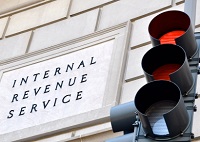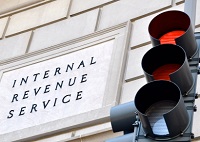The IRS has been releasing a number of adverse determination rulings recently regarding 501(c)(6) organizations. By way of background, a 501(c)(6) organization most commonly is a trade organization, business league, or chamber of commerce. Like other tax exempt organizations, 501(c)(6) organizations are not organized for profit, and no part of the earnings of the organization may benefit a private individual. They differ in a few key areas, however. Importantly, 501(c)(6) organizations must have members that share a common business interest, and work to promote such common interest by engaging in activities that have the goal of improving the business conditions of an industry or one or more lines of business. This means that the organization cannot be concerned with helping individual businesses be profitable and cannot provide services to individual businesses or persons. Further, a group of businesses that market a particular brand within an industry will not qualify as 501(c)(6) organizations. In addition, 501(c)(6) organizations can engage in unlimited lobbying activity, so long as it is in furtherance of their exempt mission.
Lately a number of organizations have been applying for tax-exempt status under 501(c)(6) with activities that push the boundaries of what these organizations are permitted to do. One example is organizations composed of service businesses that are primarily organized for networking purposes, to promote their businesses to others in order to get referrals. One example of such an organization is one composed of hair dressers, nail technicians, massage therapists, and estheticians that have the goal of referring customers to one another in order to enhance the profitability of the member businesses. Although the organization’s members are all businesses in the beauty industry, they are not concerned with bettering the business conditions in their industry. Instead, their primary purpose in organizing and being members of a 501(c)(6) is to get and give referrals to each other’s businesses and increase profitability, which benefits the members’ private interests. If, however, these businesses were instead members of the organization because they had a common interest in lobbying the federal government to regulate toxic chemicals used across the beauty industry, then they would more likely qualify for 501(c)(6) status because they would be bettering the business conditions in their collective industry.
A second type of organization that regularly runs afoul of 501(c)(6) is a sports referee service organization that operates to provide referees to schools or private sports clubs for their games and tournaments. The members of the organization may engage in a number of activities that do benefit or advance their sport, such as drafting uniform rules for the sport or providing training and education for member referees. However, the IRS issues adverse determinations based on the fact that these organizations primarily operate to provide referees with employment, and as such, benefit the private individual referees’ economic interests.
Finally, farmers’ markets also routinely apply for exemption as 501(c)(6) organizations and fail. This is because these organizations primarily provide services to member farmers and artisans, by providing them a place to sell their products and thus benefitting the member businesses’ private interests, and do not engage in activities that improve the conditions in their industry.
The lesson to be gleaned from these recent IRS rulings, is that any organization contemplating filing for exempt status under 501(c)(6) should look carefully at the activities of the organization to determine whether they primarily serve the economic or business interests of members, either by providing services or by providing networking opportunities, or improve the conditions of the industry in which they operate.

